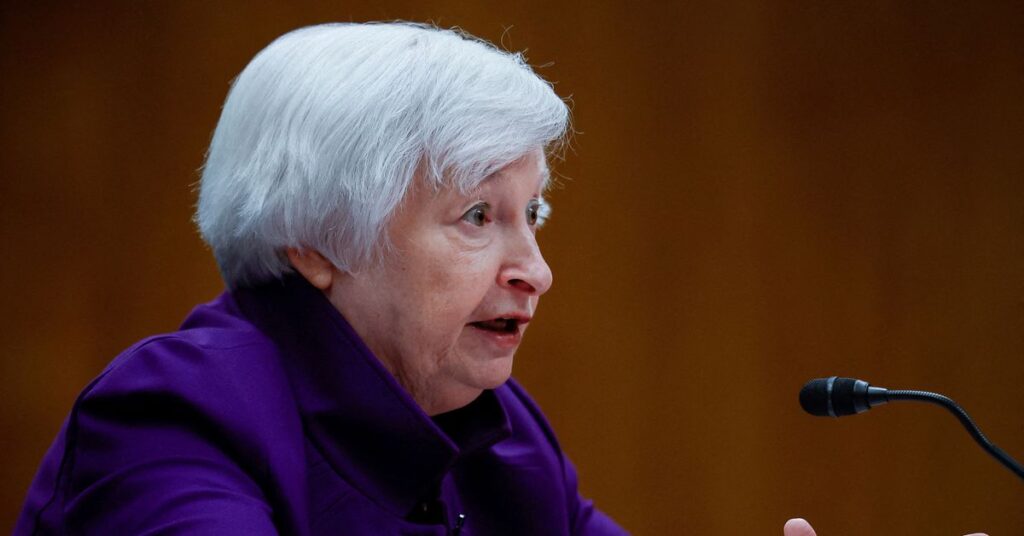WASHINGTON, April 15 (Reuters) – U.S. Treasury Secretary Janet Yellen said banks are likely to become more cautious and may tighten lending further in the wake of recent bank failures, possibly negating the need for further Federal Reserve interest rate hikes.
Yellen said in a “Fareed Zakaria GPS” interview that policy actions to stem the systemic threat caused by last month’s failures of Silicon Valley Bank and Signature Bank had caused deposit outflows to stabilize, “and things have been calm,” according to a CNN transcript released on Saturday.
“Banks are likely to become somewhat more cautious in this environment,” Yellen said in the interview, which is scheduled to air on Sunday. “We already saw some tightening of lending standards in the banking system prior to that episode, and there may be some more to come.”
She said that would lead to a restriction in credit in the economy that “could be a substitute for further interest rate hikes that the Fed needs to make.”
But Yellen said she was not yet seeing anything “dramatic enough or significant enough” in this area to alter her economic outlook.
“So, I think the outlook remains one for moderate growth and (a) continued strong labor market with inflation coming down,” she said.
Yellen is far from the only finance official expecting some retrenchment in bank credit as a result of the financial sector upheaval in the last month. Some Fed officials have said the U.S. central bank should adopt a more cautious footing as they expect banks to restrict lending in the months ahead.
Weekly bank balance sheet data published by the Fed has yet to show a material deterioration in bank lending, while also showing that deposit outflows have stabilized in the last two weeks after an initial flood of withdrawals around the time of the SVB and Signature failures in mid-March.
Yellen was asked, in the wake of concerns about the safety of deposits, whether it would be wise to develop a central bank digital currency that would allow U.S. consumers to have accounts directly with the Fed.
“There are important pros … and there are some cons with such a decision, so it’s one that needs to be seriously analyzed, but it could be something that is in Americans’ future,” Yellen said.
DOLLAR DOMINANCE
Yellen also told CNN that U.S.-led sanctions and export controls on Russia were depriving it of materials for its war in Ukraine and the $60-a-barrel price cap on Russian oil imposed by Western countries was turning Moscow’s expected budget surpluses into deficits.
The sanctions and export controls have forced Russia to resort to Iran and North Korea for military equipment and supplies and the U.S. was taking steps to curb sanctions evasion, Yellen said.
“But we think his (President Vladimir Putin’s) military is really short of the equipment they need to wage war,” she added.
Asked whether sanctions could erode the dollar’s role as the world’s reserve currency, Yellen acknowledged potential risks.
“So, there is a risk when we use financial sanctions that are linked to the role of the dollar, that over time it could undermine the hegemony of the dollar, as you said. But this is an extremely important tool we try to use judiciously,” Yellen said, adding that sanctions are most effective when used with the support of allies.
The sanctions create a desire on the part of China, Russia and Iran to find an alternative to the dollar, but this is “not easy” to achieve due to its unique properties of being backed by the safest and most liquid assets in the world – U.S. Treasuries.
“Dollars are widely used. We have very deep capital markets and rule of law that are essential in a currency that is going to be used globally for transactions,” Yellen said. “And we haven’t seen any other country that has the basic infrastructure – institutional infrastructure – that would enable its currency to serve the world like this.”
Reporting by David Lawder and Daniel Burns; Editing by Andrea Ricci
: .


